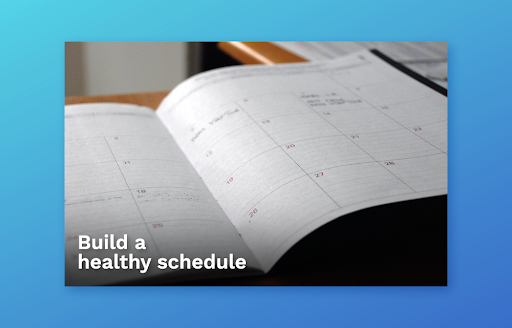Many people think it’s easy to maintain a healthy work/life balance and manage your own time when working alone. However, this is nothing but a common misconception regarding the work-from-home lifestyle.
Maintaining a good work-life balance is about separating your work and personal lives without allowing one to encroach upon the other. Both are important, and neither should be neglected.
Table of Contents
- First, The Best Smartwatches
- How should you Maintain Your Working Hours?
- Build a healthy schedule
- Prioritize your time
- Know your strengths and weaknesses
- Invest in time-tracking tools
- Know when to seek professional help
- Final thoughts
First, The Best Smartwatches
If you have to maintain your working hours, you need to have a wristwatch. It will help you avoid checking your phone, exposing you to unlimited distractions: email, social media, chats, etc.
There are a lot of smartwatches, but which is the best smartwatch under 5K for display and looks, fitness tracking and user experience?
This YouTube Review helps you learn about the best wristwatches.
How should you Maintain Your Working Hours?
Without the structure of working in an office, your schedule might fall apart quicker than you expected. Luckily, there are plenty of employee time tracking tools, websites, and applications for you to better manage your time with.
I put together a list of both free and paid services that might help you when it comes to maintaining your work hours
Build a healthy schedule

The core principle of maintaining your working hours is building a healthy schedule — and actually sticking to it. Set realistic goals for yourself throughout the day, include plenty of breaks to balance your work time, and don’t forget your meals.
Suggested article: How to Effectively Plan Your Day
We highly recommend making exercise a must-do instead of a might-do. Using your breaks smartly and including a few physical exercises will help you regain your focus and maintain a healthy lifestyle.
Break down your tasks into blocks of time. Give yourself a couple of hours to complete a batch of tasks, then take a break to freshen yourself up. Go outside for a breather, talk to friends and family, or watch some entertainment before returning to work. Time blocks allow you to be motivated to get things done, especially if you reward yourself during your break time.
Always make sure that your daily schedule includes enough time for sleep. A healthy adult should get at least 7 hours of sleep every night. According to a widely cited NASA study, the “ideal” 26 minutes nap might also help you perform better. Experiment with a nap break, and see how it works out for you!
Prioritize your time

(Work vector created by stories)
It’s one thing to plan your day, and it’s another actually to get things done. Make sure to sort your tasks in order of priority to maximize your time — this is especially useful if you’re working in time blocks as suggested above.
Make sure that the most important tasks come first. Things you need to tend to urgently should always be on top of your to-do list, no matter how much time they take.
After you’re done tending to immediate issues, move on to the most difficult tasks on your list. Generally, high-concentration tasks that require a lot of focus should be done as soon as possible. Easy and repetitive tasks can be pushed back further into the day.
Prioritize on a per-task basis as well. Breaking down a huge task to smaller sub-tasks will help you get a clearer view and make work less intimidating to start.
Know your strengths and weaknesses

When working from home, you’re on your own almost all the time. This means that being mindful of your own boundaries and skills is extremely important. Don’t take on jobs that you know you’re not able to handle on your own without asking for the proper help you might need during the project.
On the other hand, seek opportunities that let your skills shine. This will allow you to enjoy working more and look at your tasks in a more pleasant perspective.
Strengths and weaknesses play into how you build your schedule as well. If you’re a morning person, build your schedule around waking up early and getting to your work as soon as possible. If you prefer the night owl lifestyle, sleep in, and tend to your tasks when you’re at your peak productivity.
Invest in time-tracking tools
Finding it difficult to track time and manage your schedule? Don’t worry. There are plenty of tools, websites, and applications for you to better manage your time with. I put together a list of both free and paid services that might help you when it comes to maintaining your work hours.
Know when to seek professional help

If you feel like you’ve completely lost control over your work schedule or are afraid it might happen soon, don’t hesitate to reach out. There’s no reason why you should handle the stress of managing your own working hours all alone. If it gets too much, get in touch with a professional.
Look for a business coach and schedule an appointment. Make sure to arrive prepared and cooperate with what your coach suggests. However, don’t be afraid to communicate when something isn’t working or if you want a change.
Final thoughts
We believe this article shed some light on what you can do to maintain your working hours when on your own. Remote work can be hard, but the benefits definitely come through once you figure it out.
Always remember that maintaining a healthy work/life balance is an ongoing process. Be patient with yourself and gradually make positive changes. Good luck!
Are you interested in more tips on how to be more productive? Make sure to subscribe to our newsletter by entering your email address below. Receive the latest technology news in your inbox and be the first to read our tips to become more productive.